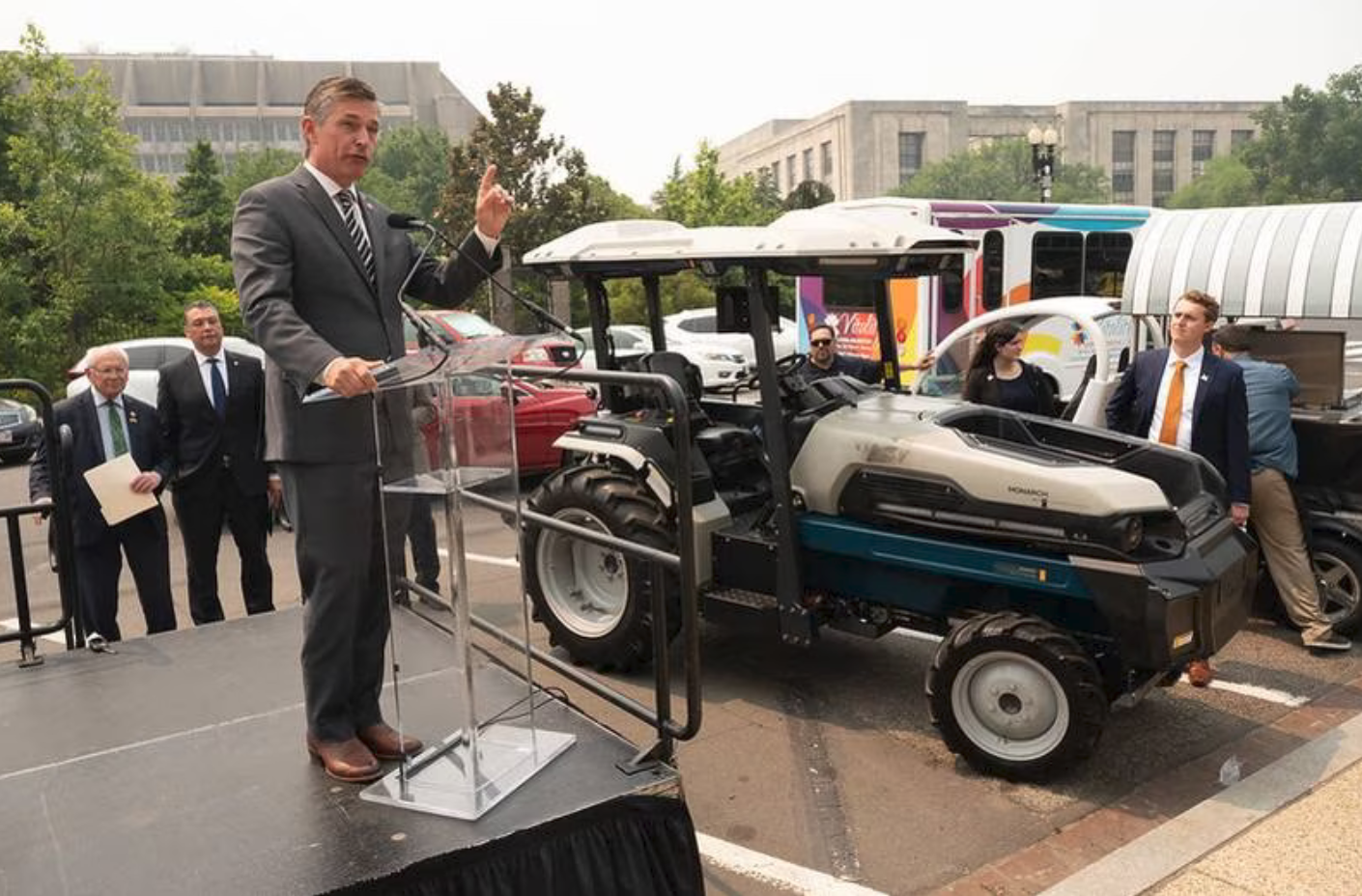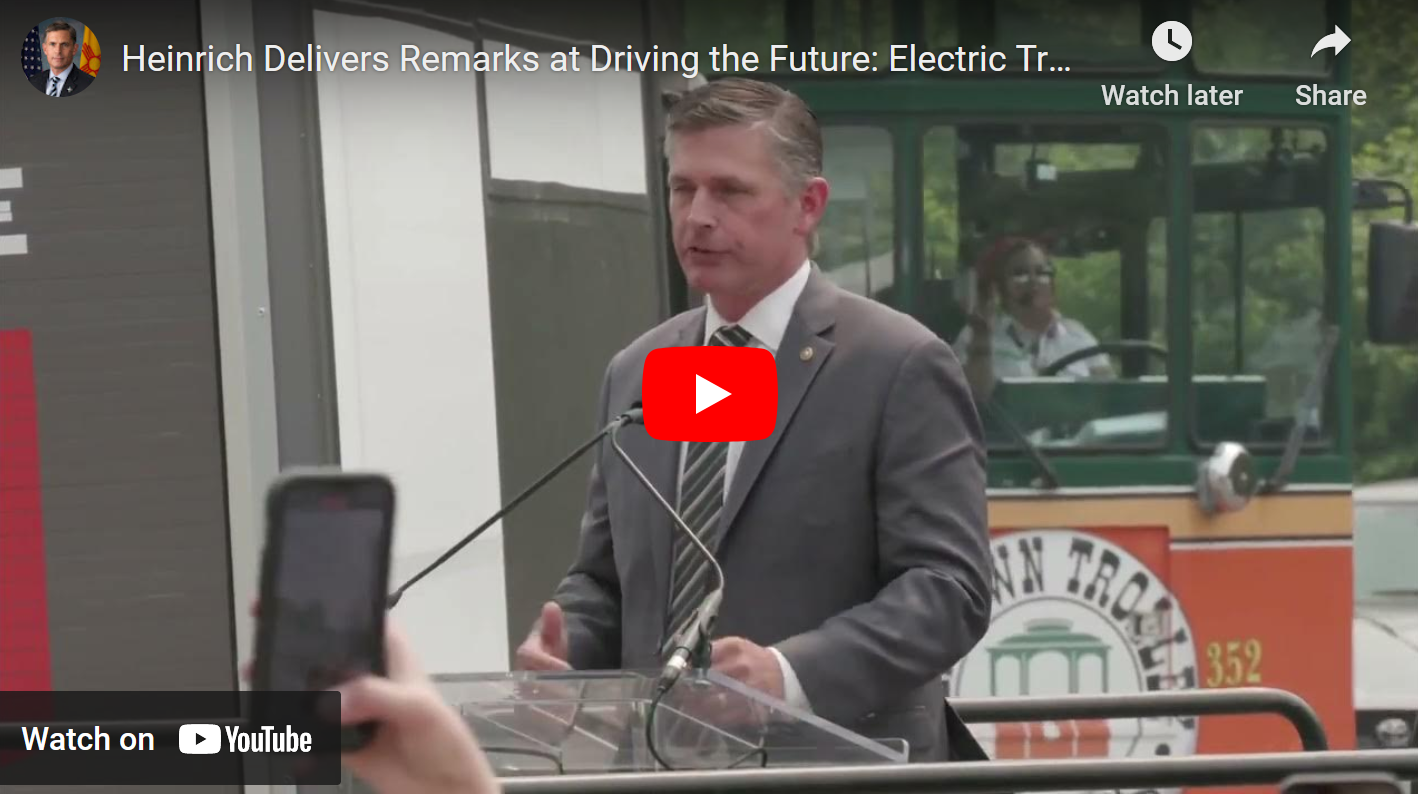Electric vehicles are the better mousetrap
Dear Friend,
Electric vehicles have become the better mousetrap. Better driver experience, lower costs, cleaner air. Plugging these electric vehicles into decarbonized power generation is also how we will prevent the worst impacts of a warming planet.
I hope you can take a moment to read and share the story below in the Santa Fe Reporter about all the benefits that will come from our transition to electric vehicles.
From passenger sedans all the way up to school buses and semi-trucks, today’s EVs are market ready right now. Last week, I enjoyed visiting an Electric Trucks Showcase, where I saw a fully electric semi-truck, delivery truck, tractor, and ice cream truck. This is just a sliver of the electric vehicles currently being manufactured and purchased all across the country.
In the last Congress, I was proud to pass the Infrastructure Law and champion the landmark Inflation Reduction Act. These new laws will help us rapidly scale our domestic manufacturing base for EVs, build out a nationwide charging infrastructure, and make it more affordable for families and businesses to purchase EVs.
If we can keep our foot on the accelerator, the cleaner, healthier, and zero-emission transportation future is right in front of us.
Sincerely,
A new report says NM could save $2.1 billion in health care costs by transitioning to electric vehicles
US Sen. Martin Heinrich, D-NM, delivers remarks at Driving the Future: Electric Truck Showcase (courtesy office of US Sen. Martin Heinrich)
By Julia Goldberg
June 07, 2023
As the East Coast encounters wildfire smoke from Canada, US Sen. Martin Heinrich took to Capitol Hill June 7 to espouse the importance of electric vehicles.
“Those of us in the West are used to this,” Heinrich said, gesturing at the smoggy air. “We’ve lived with it for 15, 20 years now. This is the result of 100 years of burning fossil fuels and it means we’re now burning our forests because the planet is a warmer place.”
Heinrich, D-NM, is already on his third electric vehicle, he said during his remarks, which he delivered during an electric truck showcase he hosted with US Sen. Alex Padilla, D-CA, and US Rep. Paul Tonko, D-NY, and members of the House Sustainable Energy and Environment Coalition and the bicameral Electrification Caucus. Heinrich built his first electric vehicles in the 1990s, as a college student. “I think the message now is these electric vehicles are a better mousetrap,” he said of the current offerings. “They’re just better vehicles. They have more torque. They’re more responsive. They don’t die in the middle of an acceleration. They just do the job better. And it couldn’t come at a more important time.”
A new report released today by the American Lung Association underscores that point by providing an analysis of how a transition to electric passenger vehicles powered by zero-emission electricity sources would impact residents in each state.
According to the report, “Driving to Clean Air,” a move to zero-emission vehicles would save close to 200 lives in New Mexico. In addition, the report says the transition to electric vehicles such as cars, SUVS and light pickup trucks, would generate $2.1 billion in public health benefits and result in 5,210 avoided asthma attacks and 22,700 avoided lost workdays.
JoAnna Strother, senior director of advocacy for the American Lung Association, tells SFR the state has taken previous actions to benefit the transition to zero-emission vehicles and could continue that work now by adopting new Advanced Clean Cars II standards—the state adopted the first iteration of the Clean Cars rule last year. At the national level, the Environmental Protection Agency is currently taking comments on a proposed rule that would create stricter emissions standards for cars and could make two-thirds of new passenger vehicles zero-emission by 2032.
The American Lung Association’s State of the Air report shows “about 59% of New Mexicans live in counties impacted by air pollution,” Strother says, “and we know that the transportation sector is one of the largest contributors to our poor air quality…And so it’s really important that because of the air pollution burden, specifically in New Mexico and in Albuquerque in the metro area…that we do as much as we can to really tackle climate change, and these air pollution burdens.” Especially right now, she says, because “we’re coming into wildfire season in New Mexico. And we’re coming into summer ozone season, and all of that will impact our health. Again, looking at those public health benefits really should dominate the way to say: ‘We need to do more in New Mexico and we can.”'


